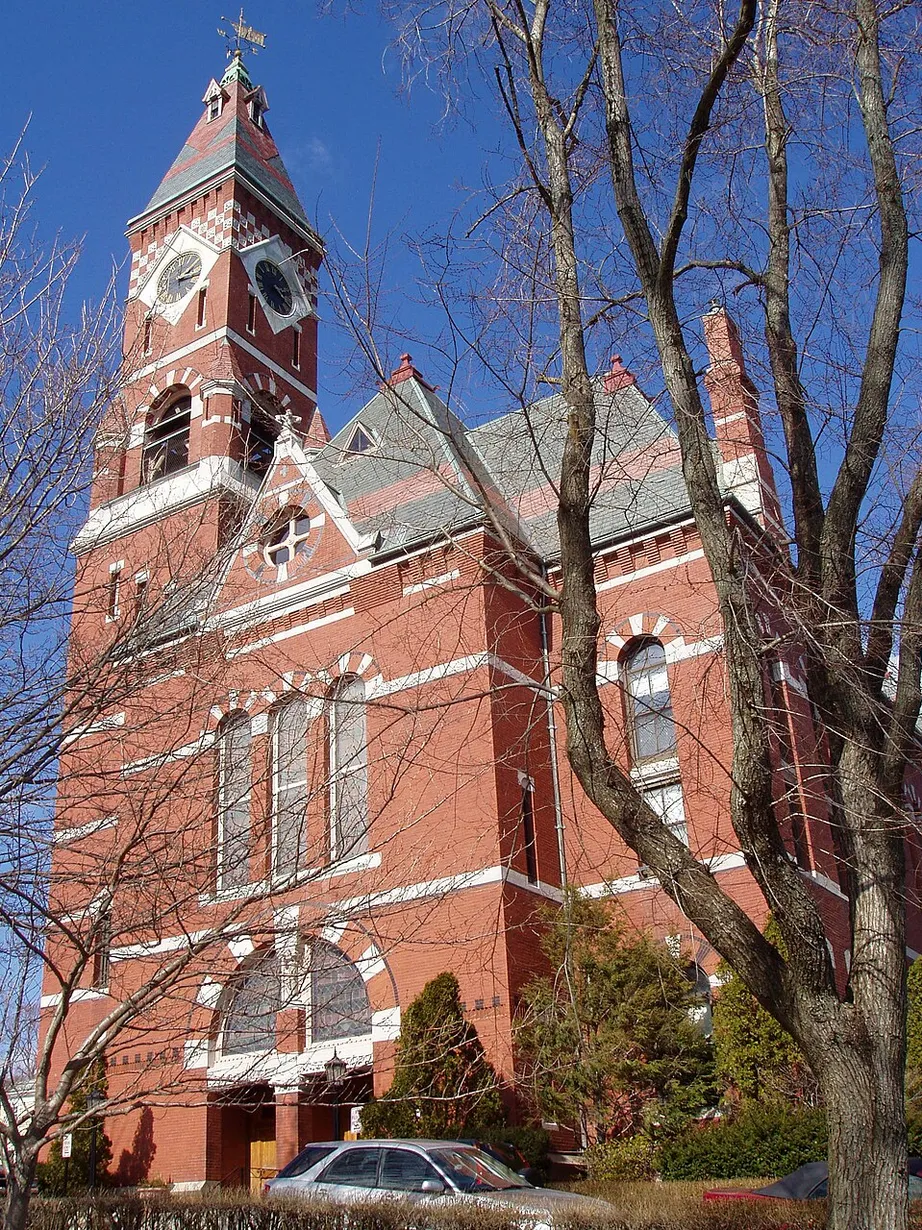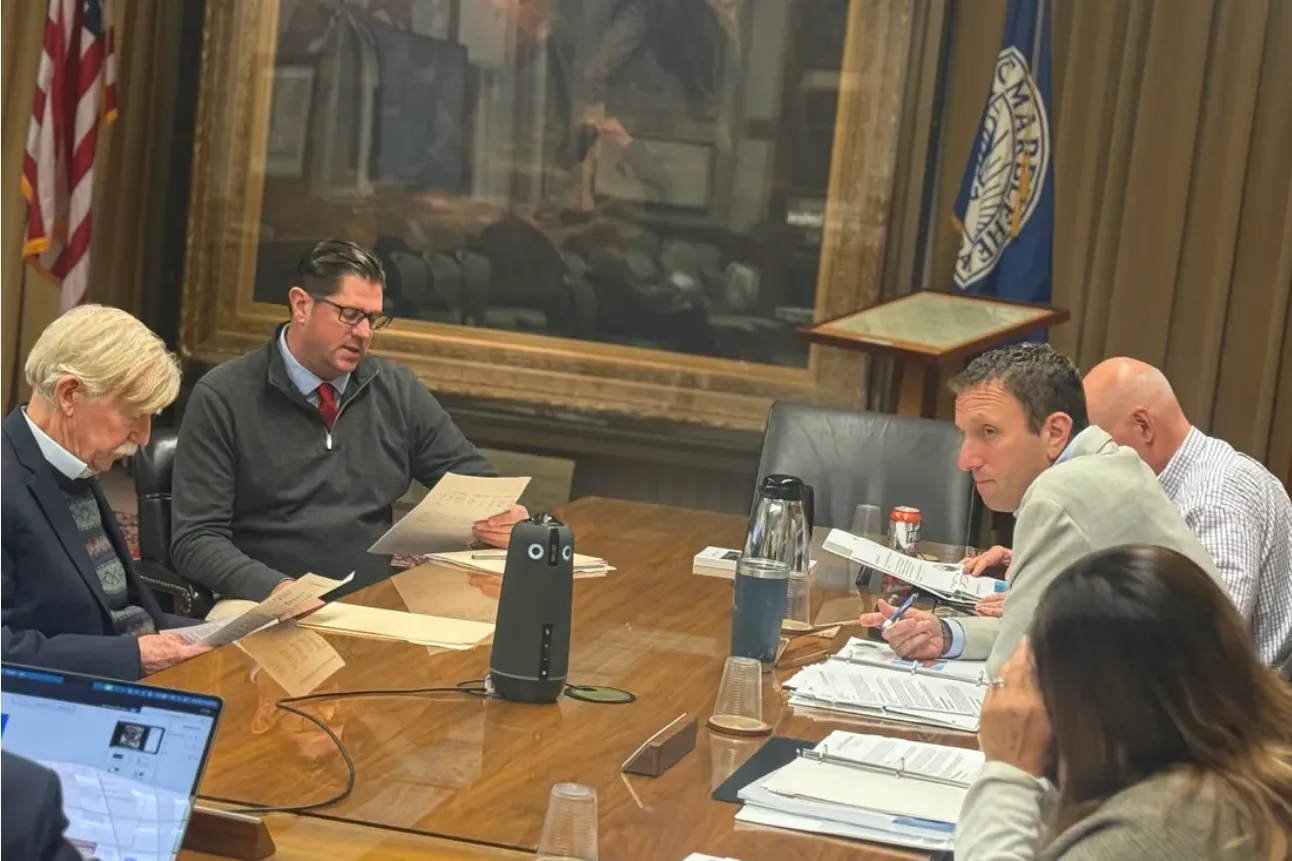Table of Contents
Michael Hall wants Marblehead residents to know about the money they’re leaving on the table.
The new energy programs manager at Marblehead Municipal Light Department has spent his first months on the job cataloging a problem: Most customers don’t know about the 16 rebate programs available to them through the NextZero initiative.
“A lot of people don’t know about the stuff that we offer,” Hall said during a recent interview at Shubie’s. “They don’t know the extent out there. I’d like to change that through advertising, newsletter and marketing.”
Hall joined MMLD in July after the commission sought for years to fill the position. He brings experience in community development, grant administration and marketing from his previous roles in Maine, including eight years as executive director of the Augusta Downtown Alliance, where he helped reduce downtown vacancy rates from 45% to 18%.
His new role encompasses running sustainability programs, marketing departmental initiatives, administering grants and overseeing rebates for both residential and commercial customers. The position pays $93,000 a year.
Popular programs need wider reach
The residential electric vehicle charger program has emerged as MMLD’s most successful rebate offering, with roughly 180 participants since inception, representing about 2% of all customers. The department offers up to $700 for EV chargers in exchange for enrollment in a connected homes program that automatically curtails charging during peak hours from 5 to 9 p.m.
“We’re flying out the door with them,” Hall said. “About every 10 days I’m having to order more.”
Energy efficiency rebates have also gained traction, with 258 customers signing up for programs including Energy Star appliances, heat pumps and connected home devices so far this year. The department expects to surpass last year’s total of 266 participants.
But Hall believes participation should be higher. His assessment stems from informal conversations around town where he consistently encounters residents unaware of available incentives.
“I’ll measure success through not only people signing up, by how familiar people are, and even talking about the programs that we run,” Hall said.
Taking politics out of energy
Hall faces a challenge common to energy efficiency work: overcoming political skepticism about clean energy initiatives.
“Most people, when I describe my job, think I have some kind of agenda,” Hall said. “Part of my job is to take the politics out of it. Let them know that these are programs that are not only going to be beneficial for the environment and for our goals of reaching 2040, but they could be beneficial for you in helping you cut down your bill.”
MMLD set aggressive decarbonization targets in 2023, aiming for 70% carbon-free energy by 2028, 85% by 2033 and net zero by 2040. The department achieved 65% carbon-free energy in 2024, significantly ahead of the state’s 50% requirement by 2030.
Marblehead ratepayers currently pay roughly 19 cents per kilowatt hour, lower than surrounding communities served by investor-owned utilities.
Expanding outreach efforts
Hall plans to launch a monthly newsletter called “The Light Keeper” in October to inform customers about rebates, department news and national energy trends. The three-page publication will include links to additional resources and program details.
He will also manage MMLD’s Facebook page and coordinate with Sustainable Marblehead on initiatives including the annual Green Home Tour, which drew 100 attendees this year.
“I see a big collaboration in getting the word out there,” Hall said. “I think it’s something that Marblehead can really kind of take the ball on. I’d like to see it grow.”
Available rebates span 15 categories across residential and commercial sectors. Residential programs cover Energy Star appliances including washers, dryers, refrigerators, thermostats, heat pumps, heat pump water heaters, air conditioners, pool equipment and battery-operated lawn equipment. Commercial programs include prescriptive lighting and HVAC upgrades, custom retrofits, new construction incentives and multifamily building audits.
Hall is pursuing grant funding through the electric vehicle integration program to install two to three charging stations at the Brown schools, working with assistant superintendent of finance Mike Pifferling on the application.
Building on past success
Hall’s background in revitalizing downtown Augusta informs his approach to marketing MMLD programs. At the Augusta Downtown Alliance, he grew the annual Trick or Treat on Water Street event from 500 attendees to nearly 1,000 through targeted social media campaigns and consistent outreach.
“It’s about getting the word out, targeted social media posts, reaching out to the right people, just being consistent,” Hall said.
He previously worked two years in community development for the city of Waterville, Maine, handling grant administration, writing and marketing. His experience with public-private partnerships and board relations prepared him for navigating municipal utility operations.
Hall encourages residents to follow MMLD’s Facebook page and watch for the inaugural Light Keeper newsletter. The department has collected email addresses from 75% of its customer base for the first distribution.
“The more followers that we can get, the more likes we can get on the page, the better we can disseminate information out to the community,” Hall said



